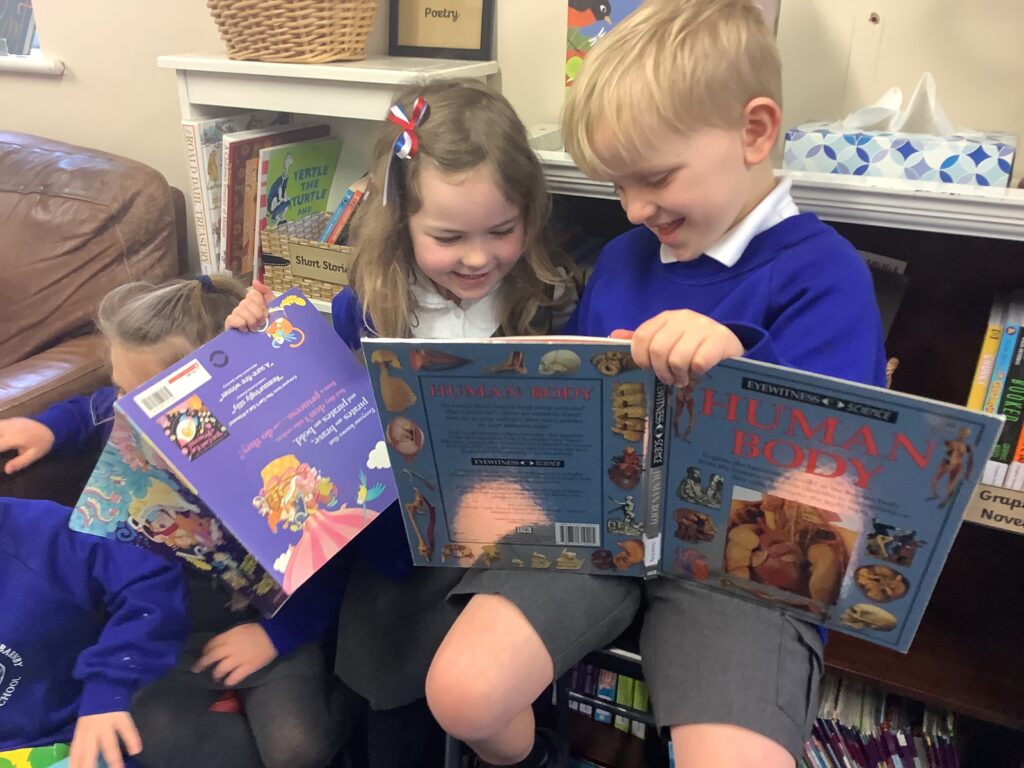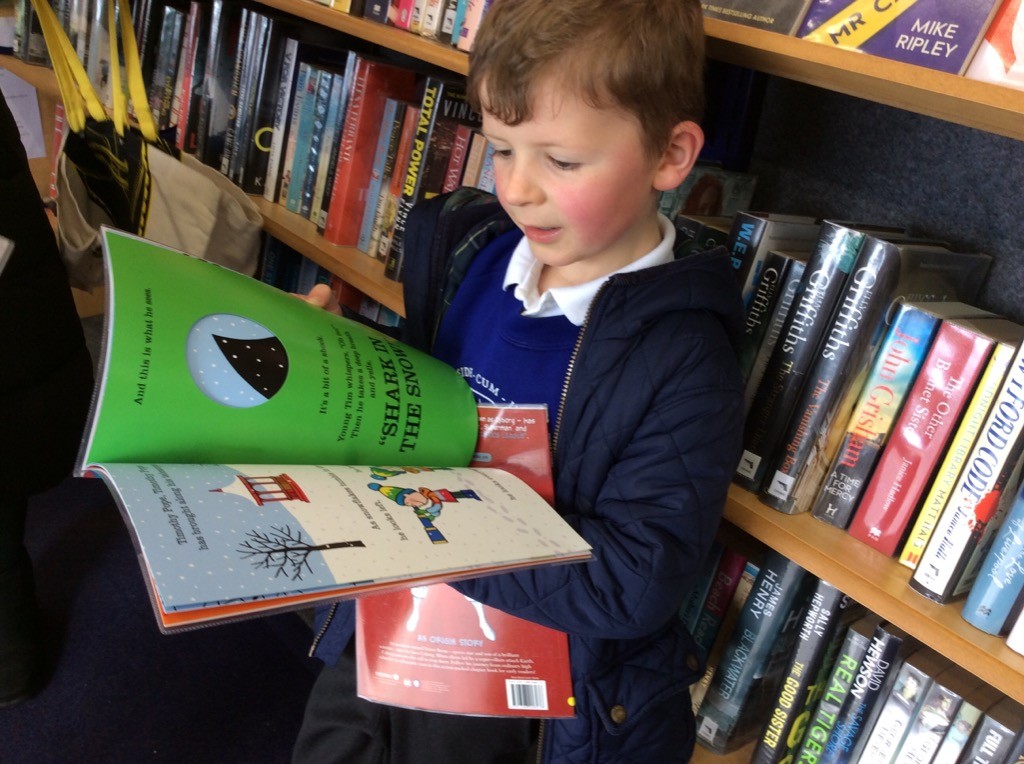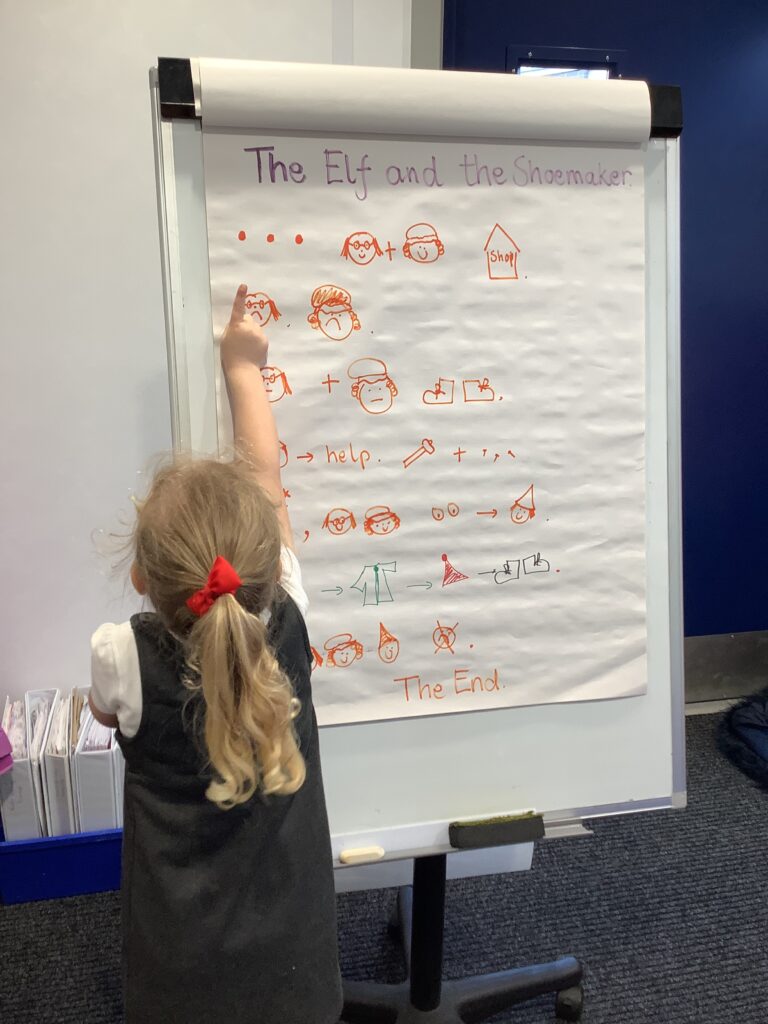 We are committed to developing a love for reading and instilling a culture of reading for pleasure across our entire school community. We work hard to promote reading around school and enjoying sharing class texts together. Our staff also enjoy reading various children’s books and we spend time discussing and reviewing these texts together.
We are committed to developing a love for reading and instilling a culture of reading for pleasure across our entire school community. We work hard to promote reading around school and enjoying sharing class texts together. Our staff also enjoy reading various children’s books and we spend time discussing and reviewing these texts together.
The curriculum leader for Reading is: Mrs Hann
Reading at Sleights involves:
|
Exploring a rich, high |
|
Careful analysis and study of a range of texts using reciprocal reading strategies (Predict, Clarify, Question, Summarise) |
|
Highly effective and high quality phonics teaching, following the Little Wandle programme, equipping all children with the tools and strategies required to read and write. |
|
A systematic, well planned approach to developing children’s fluency and accuracy, through the Little Wandle fluency programme. |
Statement of Reading Intent
The children at Sleights will be provided with a reading curriculum offer designed to:
- Establish an exciting, inspiring and engaging reading culture across school.
- Instil a love of reading and reading for pleasure across the school community.
- Reading will be ‘right from the start’, through high quality phonics teaching and provision.
- Equip children with a range of techniques to support comprehension and questioning of key information.
- Support children to read regularly.
- Allow children to access and read a significant range of high quality texts, including fiction and non-fiction, in a well organised and carefully planned system.
- Engage all children to read exciting and suitable texts by ensuring a range of texts are on offer to all children, including high quality phonetically decodable books and low level, high interest examples.
- Inspire and scaffold all staff to become reading experts.
- Provide children with language and vocabulary to support them to articulate their thoughts, ideas and opinions about texts they have read.
Statement of Reading Implementation
We are proud to provide an exciting and varied reading diet for the children of Sleights to ensure that the statement of intent for the curriculum is positively and successfully implemented across school. The implementation of reading at Sleights includes:
 Individual reading sessions (one to one)
Individual reading sessions (one to one)- Daily phonics sessions across the Early Years Foundation Stage and into Key Stage One. Support and individual sessions are delivered to those children elsewhere in school who may continue to require additional support.
- Fluency sessions (three times a week) for all children, until a reading speed of 120 words per minute, at 90% accuracy is achieved.
- Supporting all stakeholders to read regularly, through monitoring of our school reading challenge.
- Tasks designed to promote reading for pleasure.
- Ongoing, high quality and targeted staff training and development.
Children at Sleights regularly visit the mobile library when it visits the village.
Our approach to Early Reading:

At Sleights, Little Wandle: Letters and Sounds Revised is used to underpin the teaching of Phonics. In our Pre-School (Explorers class) children explore the foundations for phonics. With wordless books, children enjoy retelling stories, answering questions and asking their own. From the start of Reception (Pioneers class) children begin to learn the reading code, linking letters and sounds together. Each week, a new set of letters and sounds are introduced. These sets are grouped into half termly blocks, which continue to be taught until the end of Year 1.
Once children have successfully completed the main phonics programme for Little Wandle, they move to the fluency programme. This supports children to reach a reading speed of 120 words per minute with at least 90% accuracy.
Statement of Reading Impact:
 Assessment for learning is fundamental to raising standards and enabling children to reach their potential. Assessment in reading takes place daily using a range of strategies such as questioning, marking and feedback, verbal discussions with children and response time.
Assessment for learning is fundamental to raising standards and enabling children to reach their potential. Assessment in reading takes place daily using a range of strategies such as questioning, marking and feedback, verbal discussions with children and response time.
In addition, children complete regular ‘low stakes’ assessments, to provide an ongoing overview of the impact of reading teaching. These assessments are a combination of questions created by teachers, linked to children’s books and focus skills, or an unrelated text, unfamiliar to the children, which allows them to apply their knowledge and skills.
Summative assessment activities are carried out at Sleights using the NTS test papers across Year 1 – 6. These are completed on a termly basis, with scaled score information being produced. This data is compared with children’s targets (set out by Fischer Family Trust 20). Teachers use assessment information to inform their future planning.
Key resources
Click the links below to open key resources related to Reading at Sleights. All documents are PDF format, but some links may also take you to external website pages.
| What is the document? | Click here to download | Why is it important? |
|
Sleights Reading Policy |
Our policy outlines our approach to Reading, including details about our school’s intent, implementation and impact. | |
|
Progression of Early Reading (Phonics) |
Pronunciation Guide – Reception Autumn 1 |
This document identifies the phonemes (sounds) and related graphemes (letters) taught at Sleights and when the children meet them in the curriculum. |
|
Early Reading videos |
Video Guide – Reception Autumn 1 |
This video will demonstrate how each sound taught at Sleights should be spoken. |
